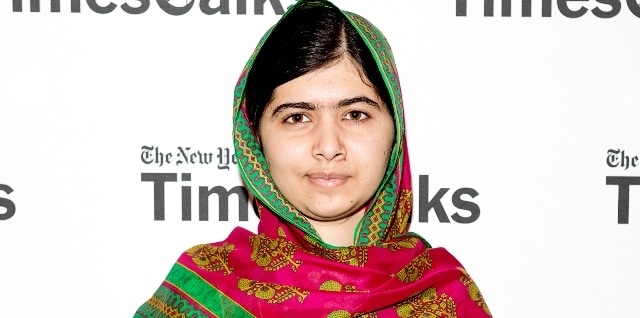A $7 million programme, whose aim is to enrol at least 50,000 out-of-school-girls from 12 districts across the country over the course of three years, was launched earlier yesterday.
The Girls’ Right to Education Programme, which will be implemented through NGOs and civil society organisations across the four provinces, is funded by the Malala Funds-in-Trust. The trust was launched in February 2014 by the government of Pakistan and the United Nations Educational, Scientific and Cultural Organisation (Unesco) to support better access, improved quality and safe learning environments for girls in hard-to-reach areas.
Speaking at the launch, Unesco’s Vibeke Jensen said target districts were chosen in collaboration with provincial governments and demonstrate the highest rates of gender disparity in the country. Jensen said the programme will target primary school age girls, parents, schools, teachers and district education officials.
The programme, she said, was created after detailed discussions with the government, civil society and schoolgirls themselves and features strategies developed according to provincial needs and local contexts.
The project aims – among other things – to mobilise school management committees, support teachers, improve physical infrastructure such as boundary walls and strengthen district officials to facilitate schools, support planning and education, and design strategies to target girls.
Speaking at the launch, Education Minister Mohammad Balighur Rehman said that the government’s resolve was to ensure 100 per cent enrolment in primary and secondary schools and reiterated the resolve to make education free and compulsory.
The minister said that the programme would pay special attention to border areas, particularly the Durand Line, where war-torn districts are facing unique challenges. The target districts for the programme are Muzaffarabad, Hattian and Neelum in AJK, Jafferabad and Ziarat in Baluchistan, Mohmand Agency in Fata, Gilgit and Hunza Nagar in Gilgit-Baltistan, Neelor and Tarnol in Islamabad, Kohistan in Khyber Pakhtunkhwa (KP), Muzaffargarh in Punjab and Tharparkar in Sindh.
The minister said the programme was being carried out in districts where there is no education infrastructure and said that with time, more programmes would be initiated to operate alongside this. He also said that provincial district education departments had been taken on board.
Balochistan MPA Raheela Durrani said that Balochistan had fallen behind in education standards.She revealed that of the 22,000 villages in Balochistan, 10,000 were without schools and there were only 11,500 schools in the province.
“There is the ghost schools issue, the ghost teachers issue, the ghosts students issue; all education is a ghost in Baluchistan,” she said.
Many of the speakers also spoke about girls’ education with regards to sustainable development goals (SDGs) set by the UN this year. UNESCO Director General Irina Bokova, in a video statement, said that the new SDGs recognised that access to education was a human right.






